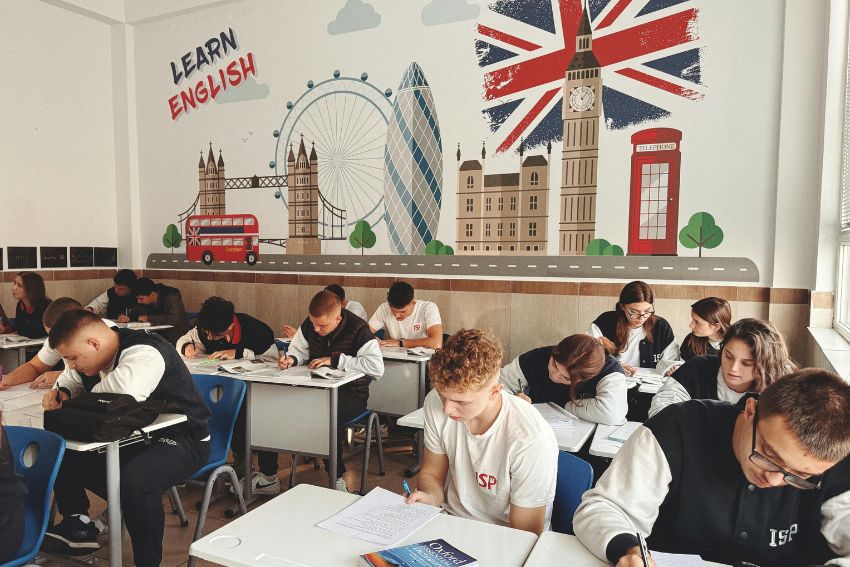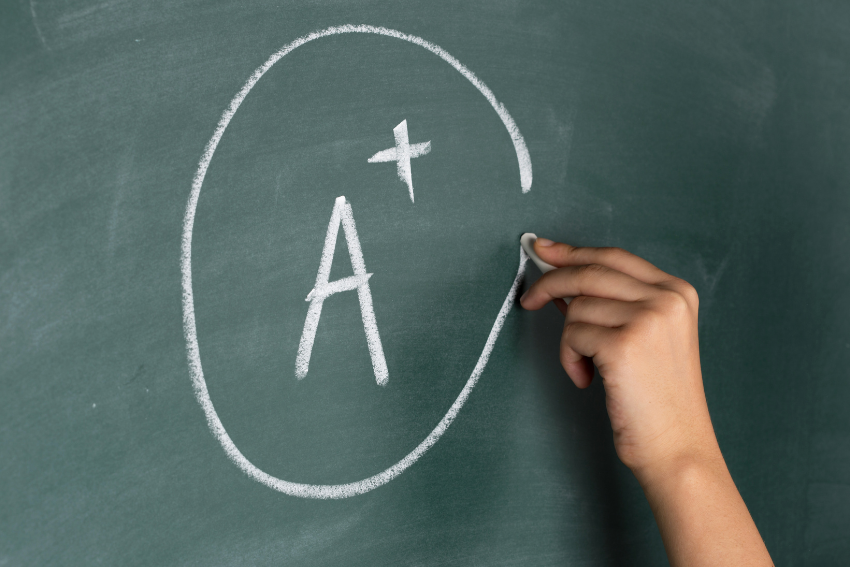What is the Difference Between English Language and English Literature?
What is the difference between English Language and English Literature? This is a question many students ask, especially when deciding which subject to focus on. Both are essential parts of education, but they have distinct purposes and learning objectives.
English Language focuses on communication skills, grammar, and analyzing non-fiction texts. In contrast, English Literature is about exploring stories, poems, and plays to understand themes, characters, and historical contexts.
Understanding these differences is especially important for students selecting their focus, such as GCSE English Literature. In this blog, we’ll dive into the key distinctions between the two subjects, discuss their unique learning approaches, and help you decide which might be the right fit for you.

Difference Between English Language and English Literature: What is English Language?
English Language is a subject that focuses on understanding and using language effectively in real-world contexts. It emphasises grammar, vocabulary, and communication skills, helping students develop the ability to express themselves clearly and confidently.
In GCSE English Language, students explore non-literary texts such as articles, speeches, and advertisements. They learn to analyze how language is used to inform, persuade, or entertain. The subject also includes creative writing, allowing students to craft their own stories or compose speeches, making it both practical and engaging.
When comparing English vs Literature, the difference lies in the purpose of study. While English Literature focuses on interpreting fictional works, English Language is all about understanding and using language in everyday situations.
Understanding what is English Language and what is English Literature about helps students build essential skills for communication, which are useful in both academic and professional settings.

Difference Between English Language and English Literature: What is English Literature?
English Literature is the study of literary works, including novels, poetry, and plays. It delves into the rich world of storytelling, exploring how authors use language to convey themes, emotions, and ideas. Through this subject, students develop critical thinking skills by interpreting characters, settings, and historical contexts.
In GCSE English Literature, students analyze classic and modern texts, from Shakespearean dramas like Macbeth to Charles Dickens’ A Christmas Carol. Poetry, including works by Romantic and contemporary poets, also forms a significant part of the curriculum. These studies encourage students to think deeply about human experiences and societal issues.
When comparing English vs Literature, the difference lies in focus. While English Language emphasises practical communication, English Literature encourages students to explore the artistic and cultural aspects of written works. This subject offers a window into the minds of authors and the worlds they create, making it an enriching choice for those who love reading and analysis.
3 Key Differences Between English Language and English Literature
So, what is the difference between English language and English literature? While both subjects are part of the English curriculum, they serve different purposes and focus areas. Here are three key differences between English Language and English Literature:
Differences Between English Language and English Literature: Focus Area
- English Language emphasises communication skills. Students learn to analyze non-literary texts and develop practical writing abilities.
- English Literature, on the other hand, focuses on interpreting literary works. It involves studying themes, characters, and settings within novels, plays, and poetry.
Assessment Style
- In English Language, assessments often include practical tasks such as speech writing, creative writing, and analyzing non-fiction texts like articles.
- English Literature assessments involve essays that explore themes, analyze characters, and discuss the historical or cultural context of literary works.
Purpose
- The goal of English Language is to develop functional communication skills for everyday and professional use.
- English Literature fosters a deeper appreciation of culture and art while encouraging critical thinking and empathy through the exploration of stories and ideas.
Understanding the difference between English Language and English Literature helps students choose the right path based on their interests and future goals. Both subjects, though different, are valuable in their own way.

The Importance of Knowing the Difference Between English Language and Literature
Understanding the difference between English Language and English Literature is essential, especially for students deciding between the two for GCSE or higher studies. Each subject offers unique opportunities, so knowing the distinctions can help students make informed decisions about their academic and career paths.
English Language equips students with practical skills in communication, writing, and analysis. These skills are invaluable for careers in fields like journalism, marketing, or content creation. By studying GCSE English Language, students gain the ability to interpret non-fiction texts and craft compelling pieces of writing, which are highly sought after in professional environments.
In contrast, English Literature fosters critical thinking and a deeper appreciation of storytelling. It’s ideal for those interested in academia, creative writing, or exploring cultural and historical contexts through texts. GCSE English Literature allows students to analyze literary works, from classic novels to modern poetry, honing their analytical and interpretive abilities.
Choosing between English vs Literature ultimately depends on a student’s interests and career aspirations. Whether they want to enhance real-world communication skills or delve into the artistic world of literature, understanding these subjects is the first step toward success.
English Literature vs Language: Why Are They Two Separate GCSEs?
Literature and English Language are separate GCSEs because they focus on distinct skill sets. English Language emphasises practical communication skills such as writing, reading, and analyzing non-fiction texts. It equips students to use language effectively in real-world situations, making it highly functional and practical.
While, English Literature explores the artistic and cultural side of English. It involves analyzing literary works, delving into themes, and understanding historical and societal contexts. This distinction highlights the difference between the two subjects, as one focuses on functional language use, while the other fosters critical thinking and an appreciation of literature.
By separating these subjects into individual GCSEs, students can develop a well-rounded skill set that combines practical communication abilities with the deeper understanding of culture and storytelling that literature provides.

English Language GCSE Revision: Strategies That Work
Revising for GCSE English Literature requires a focused approach. Here are some tips:
- Know the Texts: Reread key works, such as novels, poems, and plays, and understand their themes, characters, and contexts.
- Improve Essay Writing Skills: Practice organizing essays to explore themes, characters, and literary techniques. Use English Language Past Papers to master exam formats and time management.
- Memorise Quotes: Learn key quotes from texts that you can use to support your points in exams.
- Use Study Guides: Resources like CGP guides or online tools can help break down complex texts.
English Literature GCSE Revision: Strategies for Success
Revising for GCSE English Language requires a different approach due to its focus on skills:
- Practice Past Papers: Familiarise yourself with exam formats and time management by completing English Literature Past Papers.
- Work on Writing Styles: Practice creative writing, speech writing, and persuasive essays to master different forms of communication.
- Analyze Non-Fiction: Read articles, advertisements, and speeches, focusing on language techniques and how they impact the audience.
- Expand Your Vocabulary: Use vocabulary-building tools to improve precision and variety in your writing.
Conclusion
Understanding what is the difference between English Language and English Literature is key to making informed decisions about which subject to study. The difference between them lies in their focus and purpose: English Language hones practical communication skills, while English Literature fosters critical thinking through the exploration of literary works.
Both subjects play a significant role in personal and academic growth. English Language equips students with essential tools for real-world communication, while English Literature encourages an appreciation of culture, creativity, and historical context. Together, they highlight the relationship between English Language and English Literature, showcasing how they complement each other in developing a well-rounded skill set.
For students who need extra guidance, consider reaching out to online English Language tutors or online English Literature tutors. Personalised support can make a big difference in mastering these subjects and achieving your academic goals. Ultimately, choose the path that aligns with your interests and career aspirations, and you’ll be set for success.
FAQs:
What is English Literature?
English Literature is the study of literary works, such as novels, plays, and poetry. It focuses on analyzing themes, characters, and historical contexts to understand how authors convey ideas and emotions through storytelling.
What is English Language?
English Language is the study of how language is used in communication. It emphasises grammar, vocabulary, and the analysis of non-fiction texts, helping students develop practical writing and speaking skills for real-world use.
What is English Language GCSE About?
GCSE English Language is a qualification in the UK that focuses on analyzing non-fiction texts and improving skills in creative and functional writing. It also includes assessments on spoken language, making it a highly practical subject.
What is the relationship between English Language and English Literature?
The two subjects complement each other. English Language builds foundational skills in communication and analysis, which are also useful for studying English Literature. Together, they provide a complete understanding of how language works in different contexts.
What is the difference between English language and English Literature in GCSE?
In GCSE, English Language focuses on practical skills like analyzing non-fiction and creative writing, while English Literature involves studying and interpreting literary works, such as plays, novels, and poetry.
Is English Literature easier than English Language?
This depends on the student’s interests and strengths. English Language focuses more on practical skills, while English Literature involves critical analysis of texts. Some may find Literature easier if they enjoy reading and analyzing stories, while others may prefer the structured skills focus of Language.








